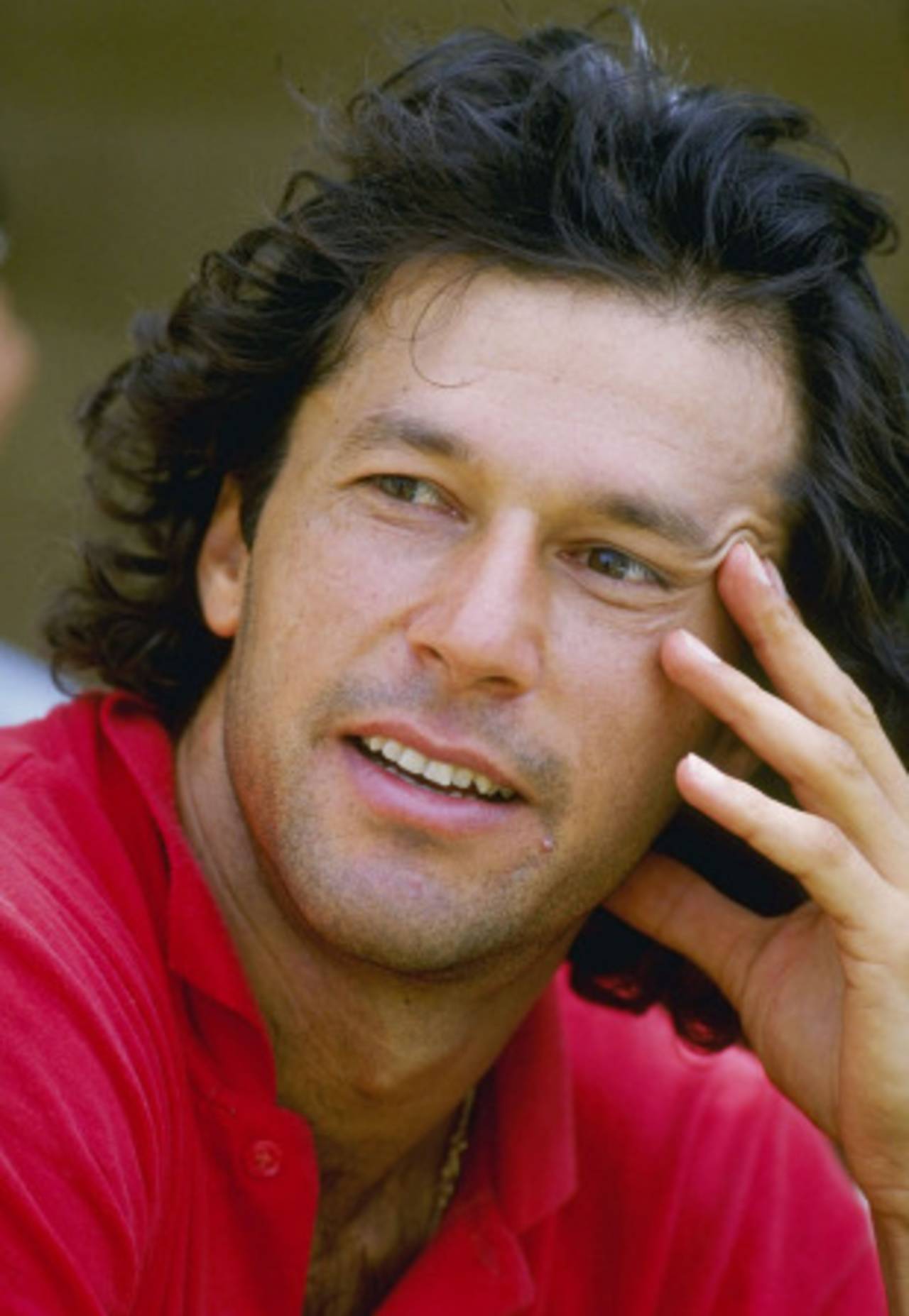Imtiaz Sipra, the great sports editor of the
News in Pakistan, was a blind drunkard. But he had the honesty of a drunk. "
Imran Khan," he would say to me, "is the King of Pakistan. He is a champ. Pakistan cricket would be nothing without him. I tell you, kid, zero." Sipra's assertions were sometimes hard to substantiate, delivered from below a shock of white hair and from between a set of teeth that would have done the devil proud. His wrecked face would sparkle at the mention of Imran, at the mention of his brilliance, and even more at the mention of naughtiness. Imran, you see, was Sipra's idea of a true hero: flawed but magnificent.
Abdul Qadir, another grand Lahori, glowed similarly when the conversation turned to Imran. Their relationship had been much more complicated than people might have imagined. Imran had backed Qadir for much of his career, but there were times when Qadir had felt let down by his captain. Despite this there was deep affection. They had shared adventures. Imran was Qadir's idea of a leader: flawed but magnificent.
I first met Imran Khan when I was 13. It was a tour match at Chesterfield, a town with a crooked church steeple, and Pakistan were warming up for a Test match.
Imran was new to the captaincy. He was better known for his Oxford flamboyance and supposed arrogance than for his determination to become a great cricketer. Majid Khan had literally whipped Imran into shape by bullying him through extreme training sessions. Imran was a warrior leader, a man who brooked no nonsense, a Pathan in everything but location: fierce, proud and magnificent. Flawed, too, in that rarely a day passed without a newspaper photo of Imran dancing, drinking or debauching in some manner or the other.
At the tea interval in the Chesterfield game, several Pakistan players busied themselves washing their whites and hanging them out to dry on the pavilion balcony. Imran, of course, did no such thing. He strode down to the outfield, padded up and clutching a handful of cricket balls. Inevitably a crowd of young Pakistani fans gathered, scuffling to give their hero some practice. Curious to see the great captain in action, I joined them. My first observation about Imran was of the way he leaned forward and towards the bowler, almost toppling over. I can't remember any other batsman tottering so precariously. It was as if Imran was determined to force himself forward at every opportunity. When I first saw the Leaning Tower of Pisa, it reminded me of Imran's stance.
My first observation about Imran was of the way he leaned forward and towards the bowler, almost toppling over. I can't remember any other batsman tottering so precariously. When I first saw the Leaning Tower of Pisa, it reminded me of Imran's stance
Eventually I plucked up the courage to bowl at him. The grunts of disapproval he emitted when other boys slipped down leg or way outside off were enough to force me to be disciplined. It was then I got an insight into Imran's psychology. He stopped the other wannabes and insisted that only I bowl to him. In deepest Derbyshire I felt the glares of envious eyes and some murmurs about nepotism. They assumed I was from the Khan family. No such thing, of course, but you can understand their reaction - and my hope that he had identified me as a talent.
At the end of tea, Imran waved a regal glove in my direction: "That's enough, thank you," he intoned in his deep-throated drawl and he was off, sauntering past me back to the pavilion. At the close of play, as the crowd rushed the players, Imran ignored autograph hunter after autograph hunter. I too thrust my book in his direction, fully expecting an autocratic brush-off, but Imran broke his stride to scribble his first name before resuming his march of no autographs. This favouritism didn't go down too well with my friends from the tea interval, but to me it was the first evidence of the Great Khan's character: flawed but magnificent. To a British Asian short of role models, it was the scribble of destiny.
The incident at Chesterfield would have been enough to merit hero status on its own but Imran did then also go on to win Pakistan's first Test at Lord's, challenge the mighty West Indies for world supremacy, and win the World Cup. But everybody knows about that.
Imran Khan turned Pakistan from a collection of talented but generally ineffective individuals into a fighting, world-class team, leading by example and through sheer will. He was loyal to talent and dismissive of sycophants and easy riders. He battled for the success of the Pakistan cricket team, and for the honour of his country, on playing fields and in boardrooms. He unearthed some of the greatest talents you would ever see. He was a role model for Pakistanis all over the world, and he attracted a vast following from people of many other nationalities. Imran Khan was flawed, yes, but he was truly magnificent. For a good while, too, he was the King of Pakistan. If you have any doubts, look in my autograph book.
Kamran Abbasi is the editor of the Journal of the Royal Society of Medicine. This article was first published in the print version of Cricinfo Magazine
